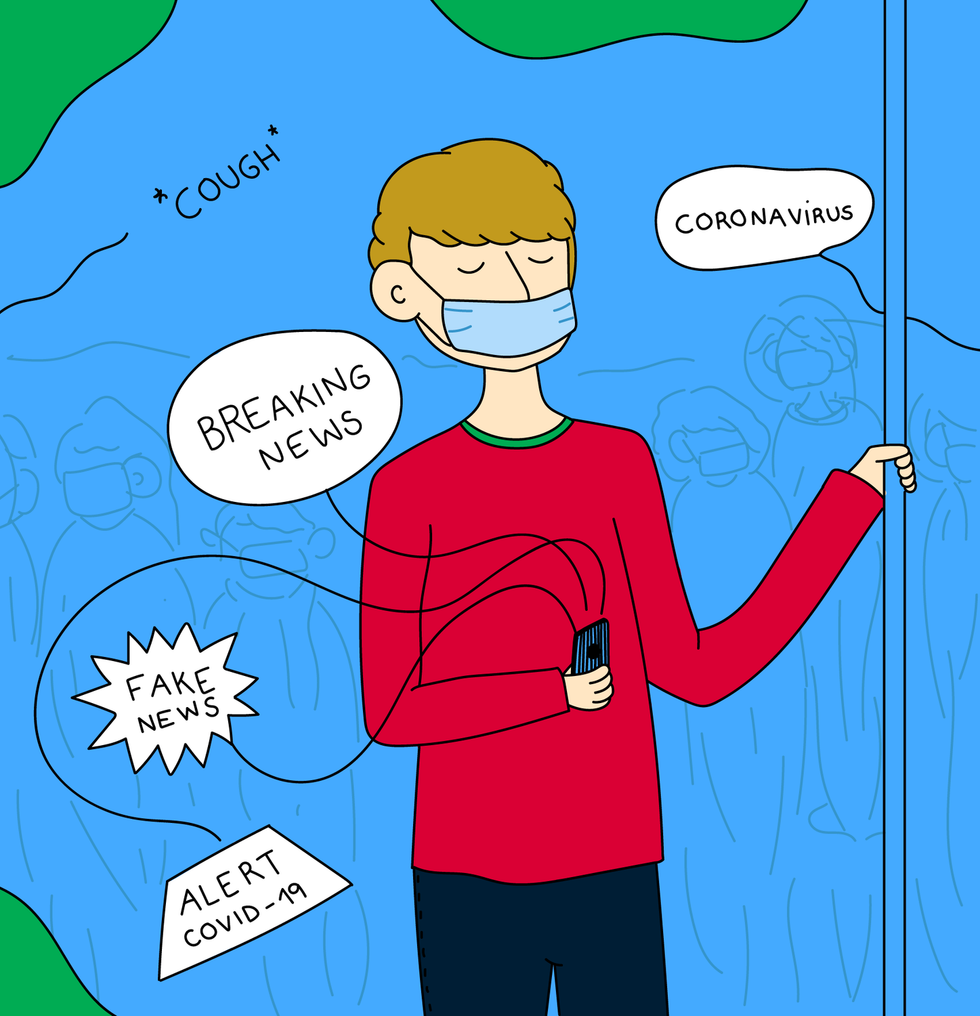Covid-19: Why are we so irrational?
23 mar 2020
3 min


The crisis the world is going through with COVID-19 comes with a set of cognitive biases that account for irrational behaviour. Faced with this unintelligible epidemic, incomplete data and a relatively unknown virus, we fall prey to at least 4 typical biases
Availability heuristic: it’s a mental shortcut that’ll make you rely only on the information you find immediately available, in particular the things you can recall immediately (short-term memory). Under availability heuristic, you tend to base your judgment and form your opinion only on the latest news. And when the latest news is just about COVID-19 all day, it doesn’t help to get perspective. Covid’s virality is matched only by the virality of fake news and controversies. Hard to stay clear-headed.
Survivorship bias: that’s when you draw hasty conclusions from incomplete data. It’ll make you overestimate the chances of an outcome by focusing all your attention on those subjects whose data made it back to you (the “survivors”). In the case of COVID-19, the name of this bias seems very inappropriate because the data that made it to the authorities are overwhelmingly the data from those people whose symptoms are very bad (and who get to see a doctor and get tested), and those who died. As a result, Covid’s mortality rate is likely to be overestimated: we don’t have enough data from people whose symptoms are mild and those who never get tested.
Bandwagon effect: it’s a phenomenon that explains why fads and trends can become viral. The probability of an individual adopting an idea, fad or trend, increases with the proportion of other people who already have. It leads to conformity, as most people get their information from others. At some point, this effect led large numbers of people to start buying face masks because they saw people wearing them, even though the protection it provides is dubious (it’s important to wear one when you know you’re infected). It’s far more important to wash your hands for 20 seconds regularly, avoid touching your face with your hands and avoid physical contact with others. The effect can be positive when it helps spread safe behaviours (like avoiding handshakes).
Normalcy bias: it’s the tendency for people to believe that things will always function normally and underestimate the likelihood of complete unexpected, crazy disaster. That’s why most people fail to adequately prepare for disasters. People and companies display normalcy bias during an unexpected disaster. It leads to inadequate supplies, backup, insurance, etc. It also leads to paralysis and what’s known as the ostrich effect. The opposite is overreaction and worst-case scenario bias. Strangely enough both normalcy and worst-case scenario biases are visible at the same time.
What does it all mean for companies?
It is critical that managers and leaders take the right decisions for their staff and customers. Employers are responsible for their employees’ physical safety and mental well-being. To make the right decisions, they must be aware of those biases and seek as much information as possible. Following official instructions is a start, but it’s often better to err on the side of caution by going beyond what official instructions recommend.
An increased awareness of these biases in a time of crisis could be the perfect opportunity to create new habits and design new health and safety rituals and processes that may be beneficial to minimise other risks after the crisis.
- With appropriate nudges and redesign, toilets could become havens of cleanliness and relaxation.
- Workers should be nudged into washing their hands thoroughly each time they visit the loo.
- Door handles should be disinfected several times a day, but swing doors to access the toilets should be considered (so nobody would have to even touch handles).
- Single use paper towels should be dispensed in the toilets for people to dry their hands safely.
- Antiseptic wipes should be provided to every employee to disinfect smartphone and keyboard.
- Hydroalcoholic hand sanitizing gel should be provided to every employee with no access to soap and water (even momentarily).
- Remote work by default is a good idea beyond Covid-19.
- Questioning unnecessary meetings is also a good habit to keep beyond the current crisis.

Más inspiración: Laetitia Vitaud
Autora y conferenciante sobre el futuro del trabajo

How women over 50 are reinventing their careers and the future of work
Women in their 20s struggle to be taken seriously, while middle-aged women battle discrimination... So how are women over 50 reinventing the wheel?
02 abr 2024

Ego depletion: The more decisions you make, the worse they become!
Digital demands and information overload are at an all-time high, making decision fatigue a critical challenge impacting productivity and well-being.
27 mar 2024

Let's stop looking down on ‘good students’ at work
Much like the adjective “kind”, calling someone a “good student” in the workplace is almost always pejorative, but why?
22 feb 2024

Is a world without work (really) possible?
Our Lab expert Laetitia Vitaud explains why she doesn’t believe in a future of unemployment and leisure.
19 feb 2024

Working time: It’s not just a question of how long you spend
If we look back to the works of the ancient Greeks, we begin to see that time isn’t just about “duration.” Intrigued?
08 ene 2024

¿Estáis orgullosos de vuestra cultura empresarial?
Dadle la visibilidad que merece.
Más información sobre nuestras soluciones